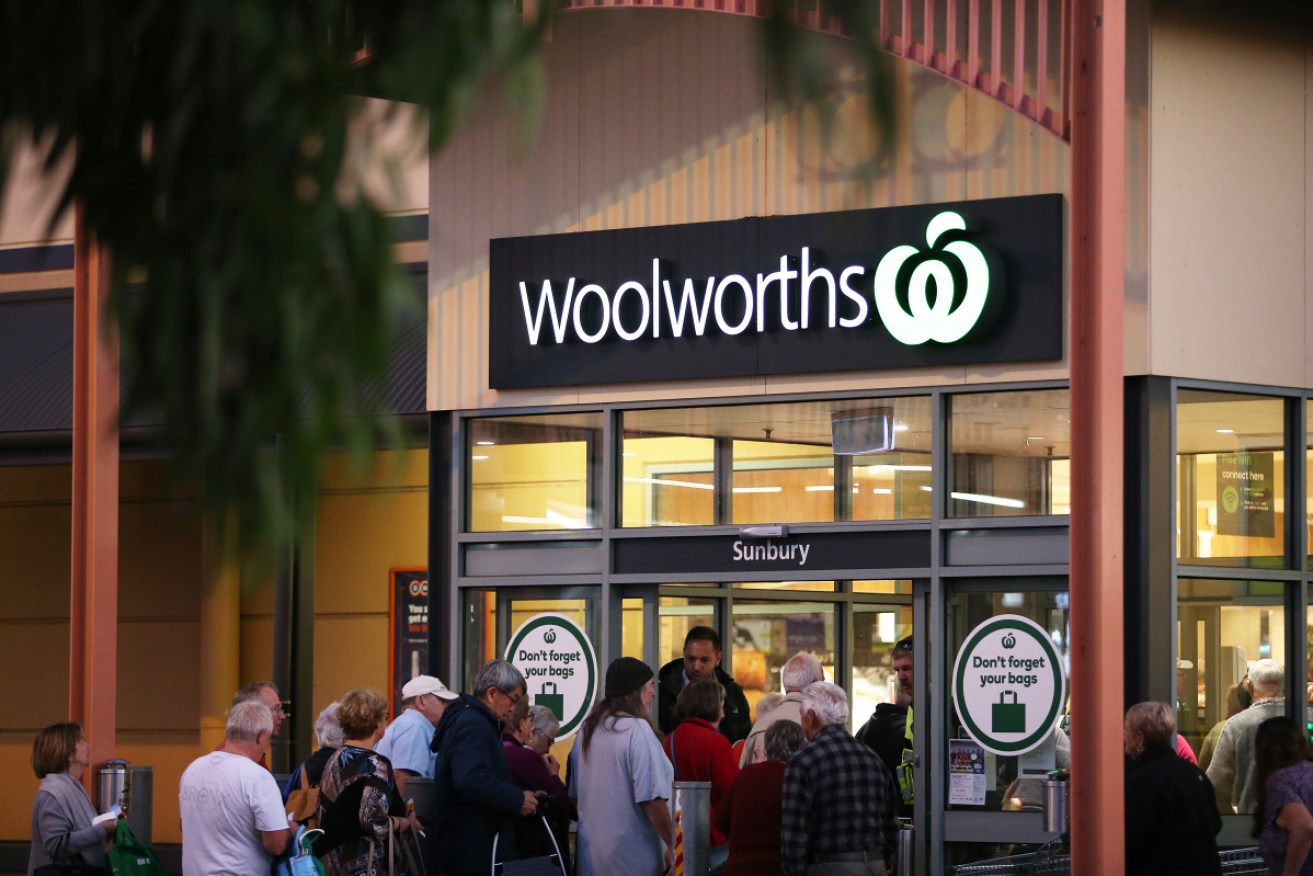Woolworths cuts store hours as coronavirus changes the way Australia shops


Woolworths will slash store hours to focus on priority deliveries to the vulnerable. Photo: Getty
The coronavirus pandemic has caused chaos in Australia’s supermarkets, but new measures are being rolled out to keep shoppers safe and help the vulnerable.
Last week, the nation’s two major supermarkets, Coles and Woolworths, were forced to temporarily freeze online deliveries due to unprecedented demand.
On Wednesday, Woolworths announced that trading hours at 41 stores would be reduced to 11am to 6pm to allow for “prioritising the delivery of groceries to the homes of vulnerable customers”.
From Thursday, the stores will be transformed into “priority delivery hubs”, with a focus on assisting the elderly, people with disability, those with compromised immunity and people in mandatory isolation.
Both Coles and Woolworths have also implemented dedicated early shopping hours from 7am to 8am on weekdays for the elderly and those with a disability.
On Tuesday, Coles expanded that to twice-weekly exclusive hours for health and emergency care workers.
Coles said it was also working out a new online priority service for vulnerable customers.
Keeping supermarkets safe
As COVID-19 spreads, supermarkets are encouraging shoppers to practise social distancing in the aisles.
Both Coles and Woolworths have recommended that shoppers keep a trolley’s length away from each other.
Selected Aldi stores have limited the number of shoppers allowed in the aisles at any one time, with priority given to those with special needs.
The key message continues to be: Keep a safe distance from others, wash your hands, make use of hand sanitiser in store, and don’t go to the shop if you’re feeling unwell.
Retailers call for bailout as shoppers stay home
As consumers stay home to help limit the spread of COVID-19, the Australian Retailers Association has called for a federal government bailout to save the retail industry.
While certain shops have been allowed to stay open, there has been a “clear indication by the Prime Minister and others that we should be very careful about how much we go out,” ARA executive director Russell Zimmerman told ABC News.
We’re being asked to leave the shops open, but we’re also asked not to go to the shops.’’
ARA executive director Russell Zimmerman
The ARA and retail workers union SDA are calling for a retail industry “rescue package”, with measures including a weekly subsidy for retail workers, underwriting a line of credit for retailers to ensure they can stay open, and guaranteeing rent payments from retailers to landlords.
“We employ 1.3 million people. We’re a $325 billion industry. That represents around 60 per cent of the domestic spend,” Mr Zimmerman said.
“If the industry collapses and if there is a carnage” then retailers could be forced into liquidation and “we will be in a bigger mess than what we are at the moment”, he warned.
Alternative food and grocery delivery services
With skyrocketing demand for home delivery as shoppers seek to skip queues, there are many small businesses providing alternatives to the big supermarkets.
Most of these are run by local farmers and business owners and service small areas, so it’s best to do some research online to find out what’s available where you live.
A number of major platforms, including eBay, Amazon, and Catch, also have a selection of food and grocery items available for delivery.
Some restaurants and caterers have adapted their menus and are offering takeaway, ready-made meals, and home delivery.
Food delivery services as Uber Eats, Deliveroo and Door Dash also operate in many areas.








